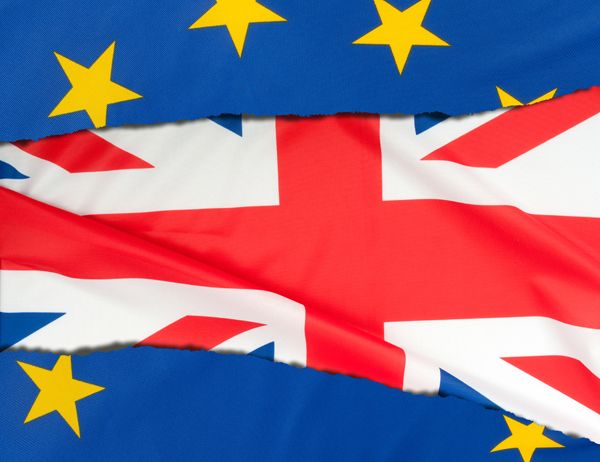

Almost £4m has be earmarked by the Council of Ministers to support work on Brexit.
Speaking at an Institute of Directors lunch on Thursday, Chief Minister Ian Gorst said that £3.7m has been allocated to support Brexit work until 2019. He said: "A Brexit planning unit is now at the heart of government, responsible for coordinating all required policy analysis, communication and engagement. As part of this work the unit will be coordinating meetings with government departments, related agencies and public bodies.
And rather than hang on the coat tails of the UK's negotiations with Europe, Senator Gorst said that Jersey - already outside of the EU but whose relationship is defined in a UK law that will become defunct once Britain bows out - could teach Westminster a thing or two.
"Jersey has been trading with Europe from outside the EU for many years," he said. "This will be new to the United Kingdom and we have offered to share our experience with the new department that is dealing with the UK’s exit from the EU."
The Chief Minister gave his annual 'State of the Nation' address to business leaders at the Grand Hotel. He robustly defended Council decisions in 2016 and gave an optimistic outlook for the year ahead.
Some of the highlights he identified were:
- 5% economic growth in 2014 - higher than anywhere else in Europe – and growth of 2.2% in 2015, more than double the forecast.
- Finance industry has more jobs today than at the peak of the 2007 pre-crisis levels. Total employment in June was 60,320 – the highest on record and 2.1% higher than a year ago.
- While private sector employment was up 3.1% in June, public sector employment dropped by 3.8%.
- £2m increase (to £12m) means-tested funding for Higher Education.
- Including the £400m bond for a new hospital, Jersey's debt to GDP ratio will be 16%, compared to the UK’s 88%, the US's 104% and Germany's 71%.
Looking ahead, Senator Gorst shared his 'To Do List' for 2017. This included:
- New laws on sexual offences and the regulation of care.
- Completing a disability strategy.
- Having a funding model for the new hospital.
- Presenting firm proposals for the funding of nursery and higher education.
- Presenting a new population policy.
Revealing more details about the latter, Senator Gorst said: "We are introducing new measures to reduce the number of permissions for businesses to employ new migrants. Last year we refused half of the applications for permanent registered staff, and only granted new permissions where needed – in areas like construction, financial services, private education and health care.
"We also want to allocate permissions more fairly across businesses. So we are expanding a pilot scheme we have been running to target companies with a higher proportion of licences for registered staff than other, similar businesses. Over the next twelve months large businesses who employ more “registered” workers than other businesses in the same sector will have their requirements assessed by the Population Office."
Concluding his speech, the Chief Minister said: "2016 has been a momentous year of change and I expect 2017 to be no different. We have strong economic and community foundations. We must fight to preserve and build upon them. Jersey is a great place to live and work. This government is committed to making the right long term decisions to keep it that way."
Comments
Comments on this story express the views of the commentator only, not Bailiwick Publishing. We are unable to guarantee the accuracy of any of those comments.